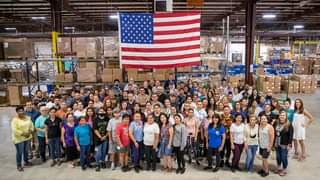Okabashi
Our Rating: 4 Stars - Good
Price: $ $ $ $
Country of origin: United States
Official brand website: Visit

Okabashi: A Sustainable Footwear Brand
When it comes to sustainability, Okabashi is making strides as a brand that prioritizes the environment, the rights of workers, and the welfare of animals. Their commitment to creating a more sustainable future is commendable, although there are areas where they could further improve. In this article, we take a closer look at Okabashi’s environmental policies, labor practices, and animal welfare initiatives to understand their overall sustainability rating.
The Environmental Impact
Okabashi has made efforts to reduce their environmental footprint through various measures. One of their notable initiatives is the use of lower-impact materials, including recycled materials, in their footwear production. By incorporating recycled materials, Okabashi is helping to reduce the demand for virgin resources and decrease waste generation. This step towards circularity shows that the brand is considering the entire lifecycle of their products.
Another aspect that contributes to Okabashi’s positive environmental rating is the durability of their products. By creating long-lasting footwear, Okabashi ensures that their products do not end up in landfills quickly. This approach promotes sustainability by reducing the need for frequent replacements and minimizing waste.
However, one area where Okabashi could improve is in water conservation. At present, there is no evidence to suggest that the brand is taking meaningful action to reduce water usage in their production processes. Considering the significant impact of water-intensive industries on freshwater resources, Okabashi could invest in water-saving technologies or explore alternative production methods that require less water.
Additionally, while Okabashi offers clothing recycling to consumers, they do not report on the results of their recycling efforts. Transparency and accountability are essential in assessing the effectiveness of recycling programs. By regularly sharing the outcomes of their recycling initiatives, Okabashi can demonstrate their commitment to closing the loop and reducing waste in the fashion industry.
Fair Labor Practices
Okabashi places importance on workers’ rights and acknowledges their pivotal role in the sustainability of their supply chain. The final production stage of their footwear takes place in the USA, which is considered a medium-risk country for labor abuse. By keeping production local, Okabashi minimizes the likelihood of labor rights violations that often occur in low-wage countries with lax regulations.
In addition to domestic production, Okabashi also traces most of its supply chain. This transparency allows the brand to identify any potential labor issues and address them effectively. By understanding their supply chain, Okabashi can ensure that workers are treated fairly and that their rights are respected throughout the production process.
However, one aspect where Okabashi falls short is in ensuring that workers in their supply chain are paid living wages. While the brand visits its suppliers regularly, there is no evidence to suggest that they have implemented measures to guarantee fair wages. A commitment to fair compensation is crucial in uplifting workers and combating poverty within the fashion industry. Okabashi could work towards establishing living wage standards and implementing them throughout their supply chain.
Animal Welfare Initiatives
Okabashi takes pride in being a brand that is entirely vegan. They explicitly state that their entire product range is free from animal-derived materials, making their footwear an excellent choice for those seeking cruelty-free options. By offering a vegan product line, Okabashi contributes to the protection and well-being of animals, aligning with ethical fashion practices.
While Okabashi excels in their animal welfare policies, it is important to note that the brand should also focus on traceability. By ensuring that their raw materials are sourced from suppliers with animal-friendly practices, Okabashi can provide a higher level of confidence to its consumers. Transparent sourcing and traceability add credibility to the brand’s claim of being genuinely committed to animal welfare.
Overall Sustainability Rating
Based on an assessment of Okabashi’s environmental impact, labor practices, and animal welfare initiatives, the brand has received a “Good” rating overall. Okabashi’s use of lower-impact materials and their dedication to producing long-lasting products contribute to their positive environmental score. Their efforts to trace their supply chain and regular supplier visits demonstrate a commitment to fair labor practices, although improvements can be made regarding living wages.
Okabashi’s claim of being a vegan brand is supported by their animal welfare policies, but they can enhance their rating by further emphasizing traceability in their sourcing practices. Overall, Okabashi is moving in the right direction and can continue to improve its sustainability practices to promote a more environmentally conscious and socially responsible fashion industry.







